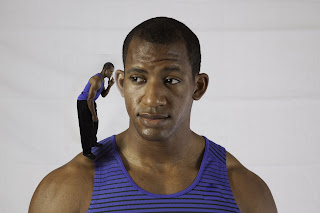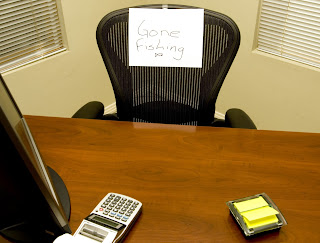 There are times when taking a passive approach, a 'don't rock the boat' perspective, may strategically be in your best interest given the situation you are facing. However, adopting passive approaches consistently will likely not serve your long term career interests if your desire is to advance.
There are times when taking a passive approach, a 'don't rock the boat' perspective, may strategically be in your best interest given the situation you are facing. However, adopting passive approaches consistently will likely not serve your long term career interests if your desire is to advance. Overly passive people are those who prefer to take the path of least resistance, who will studiously avoid upsetting others and will defer to the judgment, opinions and wishes of those around them. It is when being nice goes beyond its boundaries and becomes 'too nice'.
Don't misunderstand. Caring about others is important. However, it becomes problematic when you lose yourself to it. Other's needs should not always overshadow your own. Additionally, deferring consistently to the needs of others will make you appear hesitant, unsure, indecisive and lacking in confidence. It is this perception others hold that will grind your career advancement to a halt. If you are seen to be someone incapable of holding an opinion or making a decision, you will be left reporting to someone who does.
If you aren't sure whether you are too passive in your approaches or not, check out the following list and see if any describe you.
Passive people..
- Believe their 'fate' is in the hands of others. They will often use phrases like... "If we were supposed to be together..." or "If it were meant to be..."
- Put too much stock on 'luck' to direct an outcome or drive their success
- Often mistake failure for destiny and therefore don't learn from and push through the failure.
- Seek approval for even small things, since they are fearful of hurting or upsetting others. They will therefore often soften their language with phrases like... "I hope it's alright to tell you", "Would you mind if", "If it's okay with you". These phrases may sound nice and polite, but it's the frequency you need to be wary of. Overuse will shift you from nice to `too` nice in an instant.
- Diminish their perceived value by starting their sentences with disclaimers such as... "It's only my opinion...", "I'm no expert...", or the ever popular "I could be wrong..." People stop listening because you have already told them that you aren't going to share anything worth listening to!
- Avoid taking a stand on issues. They will highlight that both sides positions have merit, while failing to offer a firm opinion either way. You can't stand for everything or you will be seen as standing for nothing.
- Are far too deferential. They will defer their own wants and needs in favour of those of others. This appears as though they place a higher value on others' preferences than their own, which again communicates to others that their wants and needs of little importance.
- Have broken speech patterns. They will often speak with a start/stop choppiness to their sentences, with hesitations punctuated by Ums and Uhs. The lack of a smooth rhythm or flow makes them sound less confident and uncertain of their content.
- Too self critical. They will tend to use phrases such as "I can never do anything right". Though they may believe that they only say this to themselves (negative self talk), rest assured that the more negative self talk you engage in, the more it unconsciously filters into your public speaking as well.
- Poor body language. Passive people will tend to also adopt far more passive body language, avoiding eye contact, engage in minimal gesturing, compress their body down and in, will adopt protectionist stances by holding their arms close to the body or across the abdomen.
Any of these sound or feel familiar? In business it is important that we appear confident. Adopting too many passive behaviours will detract from this impression and will prevent us from obtaining the opportunities we desire. If you are looking to eliminate some of your more Passive behaviours, replacing them with more Assertive approaches, consider using the following 3 step approach.
- Identify the ways you are passive. You need to be honest with yourself, or be open to receiving honest feedback from others, and determine what are your most common passive behaviours. You need to be able to recognise the behaviour if you hope to be able to change it. Video of yourself interacting with others can be an invaluable tool, helping you to hear and see behaviours you might have missed otherwise.
- Determine what a more Assertive Behavioural alternative to that Passive behaviour would look like, sound like, feel like. In step one you identified the behaviour to change. In this step you identify your target. What are you going to do instead. For example, if you find that you tend to use the phrase "It's just my opinion" as an opening to giving voice to your thoughts, you might want to target replacing it with "I think...", or "I have found..." Neither is aggressive, but both clearly position the statement you share as your opinion. The elimination of the denigrating 'just' from the statement elevates the perceived value of your thought.
- Put it into action. I would suggest starting with one behaviour and, when it feels comfortable for you, pick up another. It is far more difficult trying to change everything at once. Changing one key behaviour at a time will actually get you there faster. Additionally, your brain will start to pick up on the unconscious messaging and will ultimately recognise 'where' you are looking to go, making other positive unconscious adjustments for you.









